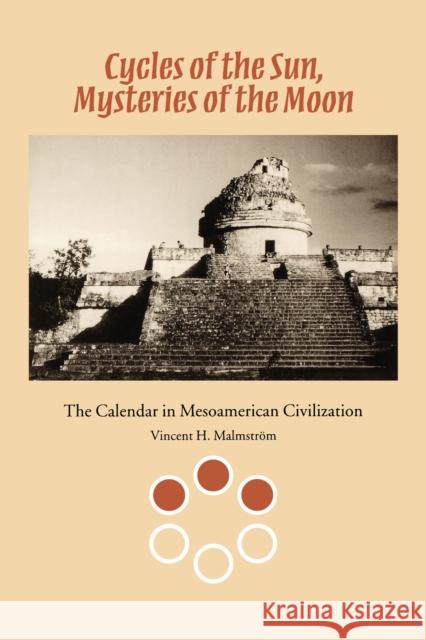Cycles of the Sun, Mysteries of the Moon: The Calendar in Mesoamerican Civilization » książka
Cycles of the Sun, Mysteries of the Moon: The Calendar in Mesoamerican Civilization
ISBN-13: 9780292751972 / Angielski / Miękka / 1997 / 296 str.
The simple question "How did the Maya come up with a calendar that had only 260 days?" led Vincent Malmstrom to discover an unexpected "hearth" of Mesoamerican culture. In this boldly revisionist book, he sets forth his challenging, new view of the origin and diffusion of Mesoamerican calendrical systems--the intellectual achievement that gave rise to Mesoamerican civilization and culture.Malmstrom posits that the 260-day calendar marked the interval between passages of the sun at its zenith over Izapa, an ancient ceremonial center in the Soconusco region of Mexico's Pacific coastal plain. He goes on to show how the calendar developed by the Zoque people of the region in the fourteenth century B.C. gradually diffused through Mesoamerica into the so-called "Olmec metropolitan area" of the Gulf coast and beyond to the Maya in the east and to the plateau of Mexico in the west.These findings challenge our previous understanding of the origin and diffusion of Mesoamerican civilization. Sure to provoke lively debate in many quarters, this book will be important reading for all students of ancient Mesoamerica--anthropologists, archaeologists, archaeoastronomers, geographers, and the growing public fascinated by all things Maya.











